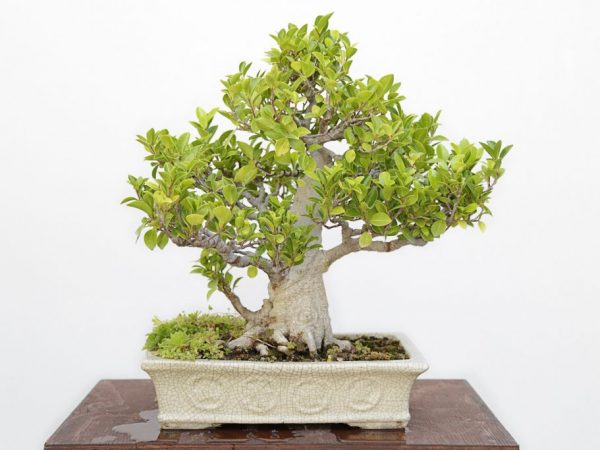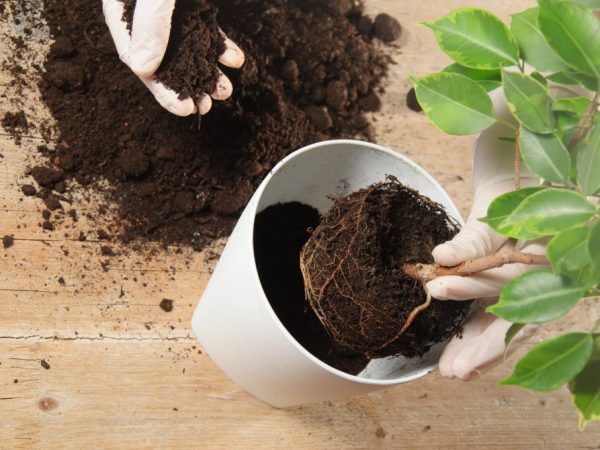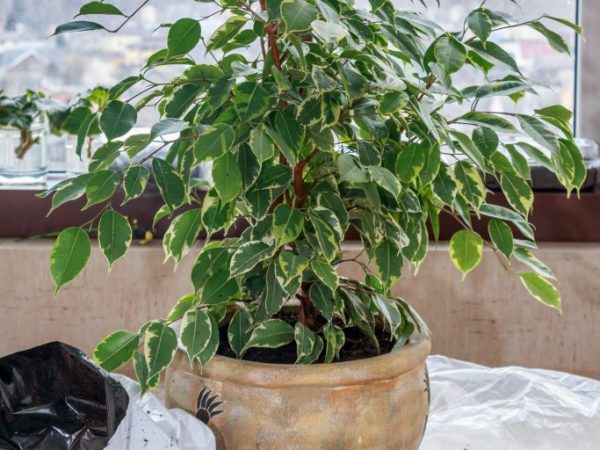Soil and soil for planting ficus
Ficuses are one of the most popular indoor plants. They are the favorites of many flower growers and ordinary people who want to decorate their home. Due to their unpretentiousness, ficuses are widely known, however, not all growers properly care for them. First of all, you need to pay attention to what kind of land is needed for the ficus, so as not to mistakenly destroy the plant.

The correct choice of soil and soil for planting ficus
Sometimes the fact that soil and soil are two different concepts is misleading. We are used to identifying these words, considering them synonymous. However, there are serious differences between them.
The earth is called the mineral and loose part of our planet, which includes all plant and animal organisms, it is a completely self-regulating system.
The soil is called the part of the land that is fertile, and the soil is its mineral part. A man-made planting mixture is called a substrate. It can contain both soil and soil, or it can be dispensed with one of these components.
Soil requirements for ficuses
The substrate prepared for planting ficuses must meet certain requirements. Although ficus is a rather unpretentious plant, with an incorrectly selected soil, it can shed its leaves or completely disappear due to a rotten or, conversely, a dried out root system.
Basic requirements for the soil for ficuses:
- The main requirements for soil for indoor ficus are good air and water permeability. This allows the plant to fully metabolize and grow healthy.
- It is important to take care of the acidity level of the soil for the ficuses. This indicator should not exceed 7 units, but also should not fall below 6.5. This environment is called slightly acidic.
- When choosing a soil, it is better to abandon clay soil: it causes stagnation of water in the pot and does not provide the green friend with the necessary metabolism. Stagnant water leads to root rot and the appearance of insect pests.
- The required soil composition for ficus is a mixture rich in various elements: peat, sand, turf and leafy soil (deciduous humus). This combination provides the plant with the necessary set of micro and macro elements.
- The density of the soil for ficuses plays an important role. Young plants need looser soil, but older ficuses need denser soil.
- The flower grower must make sure that the pot does not retain water in the soil for the ficus, that is, it has a drainage hole. Expanded clay, broken brick or pebbles are placed on the bottom in front of the soil layer to ensure proper drainage of water from the soil.
The soil necessary for ficus can be purchased in specialized stores, where sales consultants will always help you choose the optimal soil composition for indoor ficus. You can buy a substrate where the composition has already been selected in advance, or just a universal soil. If the choice is made in favor of the latter option, sand must be added to the soil for the flower.

For planting, you can use universal soil
There is another option: independent production of soil for ficus with the necessary composition. Experienced flower growers assure that with such care of the flower, it grows much better and better, has a healthier appearance and shiny leaves. But at this stage, a novice gardener has many questions: how to independently prepare the soil for the ficus, what it should be in terms of composition, where to get the necessary elements, etc. All this is very simple and inexpensive, if you are at least a little savvy and study additional information.
DIY soil for ficus
Self-production of a substrate for planting ficuses: Rubber, Benjamin, Kinky and any others - does not take so much time, especially if there is a flower shop nearby where you can purchase all the elements necessary in composition.
It is worthwhile to figure out what kind of soil is needed for ficuses in composition. The substrate should include:
- turf;
- sand;
- peat;
- deciduous humus.
The easiest option is to mix all the ingredients in equal proportions. Such a composition will already be better than ordinary clay soil. But all plants are different: they differ in age and type, therefore they need the land somewhat differently. It is better for young plants to prepare just such a mixture: one part of peat, sand and leaf humus. All this must be thoroughly mixed so that the components are evenly distributed and provide the soil looseness necessary for young ficuses.
Older seedlings need a harder and more dense soil, therefore the composition of such a substrate will be different: 2 parts of turf (sod land), 1 part of leaf humus, which is sand.
You can also use the example given at the beginning of the section with the same ratio of all components of the substrate. In addition, the grower needs to take care of the density of the soil he forms. It is necessary to lightly compact the soil for more mature flowers.
Tricks

Follow the recommendations
It is not enough to know what kind of soil is needed for a ficus. There are situations in which novice growers are lost: for example, the appearance of insect pests or excessive moisture in pots with plants. But you should not immediately get upset and panic: this happens periodically with any flowers, it is only important to recognize the problems in time and inquire about ways to solve them. General guidelines are:
- We must not forget to lay expanded clay on the bottom of the pots. If not, it can be replaced with charcoal, coarse sand or pebbles. This allows you to regulate the amount of moisture absorbed by the plant.
- For the regulation of moisture, the drainage system of the pot is also important, that is, the possibility of draining the water.
- For some types of ficuses, it is useful to add vermicompost (a substance produced by earthworms) to the substrate. It improves the survival rate of asthenia when transplanted into new pots, and also stimulates growth.
- Sometimes the plant suffers from an overly acidic environment. To lower the acidity of the soil, it is worth using dolomite flour and lime, which enrich the earth with calcium and magnesium, which are required for the safe functioning of all flower systems.
- For some arid bottle breeds, you will need to add bricks or pebbles to the pot.
- In the soil for a houseplant, if it has been excessively moistened, white worms can start. These are small parasites (body length does not exceed 2-3 mm) that harm the flower. To get rid of them and protect the flower from the harmful effects of insects, you need to process it with Intavir or its analogues. After the end of the course of treatment, the ficus should be transplanted.
The flower also needs fertilizing and mineral fertilizers, because the soil for the ficus is depleted, and its mineral composition becomes poorer.
Fertilizers for ficuses are not too different from fertilizers for other indoor plants. They are:
- dry (produced in granules, their method of application is extremely simple: mix with the ground, where they will dissolve and be absorbed by the plant during watering);
- liquid (produced in the form of a liquid that must be dissolved in water, and then used to feed plants: water or spray the soil);
- prolonged sticks (fertilizers created in the form of sticks, which must be placed under the roots or simply stuck into the ground, and then watered to start the activation process; the principle of action is similar to dry fertilizers);
The most important component in fertilizers for indoor plants, and any other plants, is nitrogen. Nitrogen-containing dressings are extremely useful for any plants: both decorative and industrial crops. But the soil for indoor ficus also needs phosphorus and potassium. They help the fixer not lose its excellent crown and retain the glossy shine of the leaves.
Conclusion
If you follow these simple instructions and do the necessary minimum that is required when caring for a ficus, you can easily grow a healthy and beautiful plant. Caring for ficuses is also not a difficult process, especially if the grower does not want to propagate the plant.
Ficuses are wonderful flowers for home or office, which will decorate any interior and will appeal to all family members. Another useful property is that they are phytoncides, that is, they emit special substances (phytoncides) that purify the air and have a beneficial effect on human health and the environment. They are ideal for people who want to cleanse their homes from the dust of big cities and heavy atmosphere.


